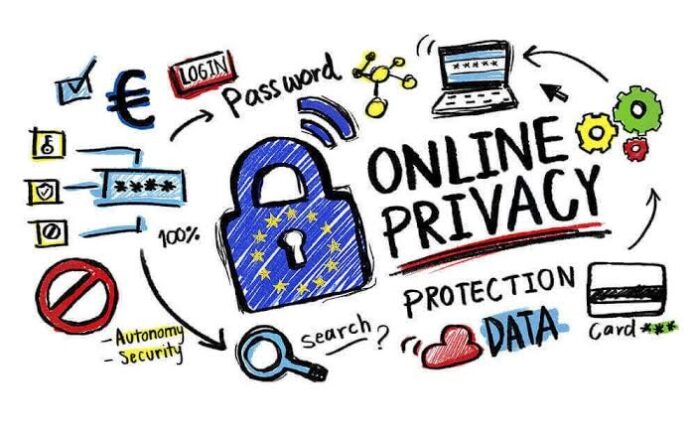
The increasing level of development of the internet does not always have a good impact on its users; it can cause big losses for internet users because of the many criminal activities that are caused.
Privacy of personal data on the internet is something that is often ignored by internet users. Leaking personal data on the internet could cause you big losses in the future, and it can be difficult to retrieve if you don’t have any tool like office 365 email backup as your disaster recovery tool.
Today there are also many cases of leaking personal data on the internet. For this reason, take good care of your privacy when using the internet so that your data does not leak because data leakage can be very detrimental to you.
10 Ways To Maintain Privacy On The Internet From The Reach Of Hackers
Then, how can we protect our privacy when using the internet? The following are 10 ways to maintain privacy on the internet from the reach of hackers.
-
Make It A Habit To Use A Strong Password When Creating An Account
The first way to maintain privacy on the internet is to use a strong password. Passwords are your main defense when surfing the internet. For this reason, don’t use passwords that are easy to guess, for example, birthdays, your names, the same set of digits, and the like.
As much as possible, avoid using passwords that are easy to guess. Even though sometimes the easy-to-guess passwords are easy for you to remember, it’s too risky. Usually, easy passwords are also easy to break into by hackers.
Use a more complex password, such as a combination of letters, numbers, symbols, capital letters, and so on. Passwords like that are usually difficult for hackers to crack.
-
Perform Two-Factor Authentication (2FA)
The second way to maintain privacy on the internet is to use two-factor authentication (2FA). When you implement two-factor authentication, when a hacker wants to break into your account and knows a lot about your privacy, the hacker needs a code that goes beyond the password. The code is usually sent to your phone number or email. That code will protect you when your account wants to be compromised by hackers.
When you have implemented this method, and after a while, you get a message giving an Authentication code even though you are not logging in, then the best step is for you to change your password to a stronger password.
-
Have a Backup Email
The third way is to have a backup email.
So that your internet privacy is better maintained, don’t forget to have a backup email account. Today, almost all websites ask users to enter their email addresses if they want to use the services they offer.
Of course, it will be safe – it’s safe if the site you visit is a trusted site. The problem is, nowadays, many untrusted sites also ask for your email address. By using this backup email, you will avoid various spam messages in your primary email.
-
Use Private or Incognito Mode When Browsing
The fourth way to maintain privacy on the internet is to use incognito when browsing.
By using private or incognito mode when browsing, your privacy will be more secure. The reason is this mode works by not saving your browsing history while surfing the internet, as well as various data – data and passwords, cache, and cookies.
All traces of your journey will not be saved after you exit the incognito mode browser window. So, when someone borrows your laptop or computer before, they won’t know what activities you did before.
Private or incognito mode is available in various browsers. As far as the author knows, three browsers support this mode, namely Microsoft Edge, Mozilla Firefox, and Google Chrome.
-
Using a VPN (Virtual Private Network)
The fifth way to maintain privacy on the internet is to use a VPN. By using a VPN when accessing the internet, your internet network will be moved to a different location. That way, you will not be easily identified by sites that are tracking you. By using a VPN, of course, you can increase protection for yourself. By using a VPN, your data will be encrypted, so it will be easier for you to avoid prying eyes.
Related to this VPN, there is one VPN service provider that we recommend, namely Surfshark. The advantage of this VPN is that you can use it on all the devices you have, such as smartphones, tablets, Windows-based laptops, and macOS to Linux. You can also try it for 30 days for free, and for 30 days, there is also a money-back guarantee.
-
Using Tracker Blocker
Most of the sites we encounter today already use some kind of platform tracking or analytics feature. These trackers will usually track marketing effectiveness on their website. They can also get information related to the number of visitors.
However, did you know behind the good features offered, it turns out that this website can also collect your data such as IP, location, and type of device you use?
To overcome and anticipate these events, we can use the tracker blocker application.
Using a tracker blocker is the sixth way to maintain privacy on the internet.
-
Clear Your Cookies Regularly
Cookies are small files stored in your browser whose information is related to the browsing of the website that you are doing. On the one hand, cookies will make it easier for you to stay logged in to sites that you have accessed.
This certainly makes your browsing process easier. However, you also have to remember. Actually, they also track your activity. For this reason, to be safer, clean your cookies regularly, especially if the device you use is often borrowed by people close to you.
-
Be Careful In Granting Access Permissions
For those of you who often download applications from the internet, maybe you often get notification messages from these applications to grant access permissions. For security reasons, you must be careful when doing this.
Because if you are not careful in doing this, the application may ask for access permissions that are not needed. If you grant an app permission without knowing what you agree to, it could inadvertently be an invasion of privacy for yourself.
-
Use An Ad Blocker ( Ad Blocker)
Ad blockers and tracker blockers are the same. They both work by detecting ads that will appear on a site and then blocking them before they are loaded.
Apart from being able to protect you from the large number of data sets that could have accumulated from the many advertisements. Ad blockers can also speed up your loading time.
-
Don’t Store Personal Information In Public Storage
Personal information is very sensitive data. For that, you should never store personal information in public storage. For example, you store passwords in Google Documents. This can be dangerous because Google Documents is not the ideal place to store your passwords unless you store them in an encrypted archive.
Those are 10 ways to protect privacy on the internet from the reach of hackers that the author can give to all readers. I hope this information is helpful. By knowing these 10 ways, it is hoped that you will be even more careful in using the internet to protect your privacy.








